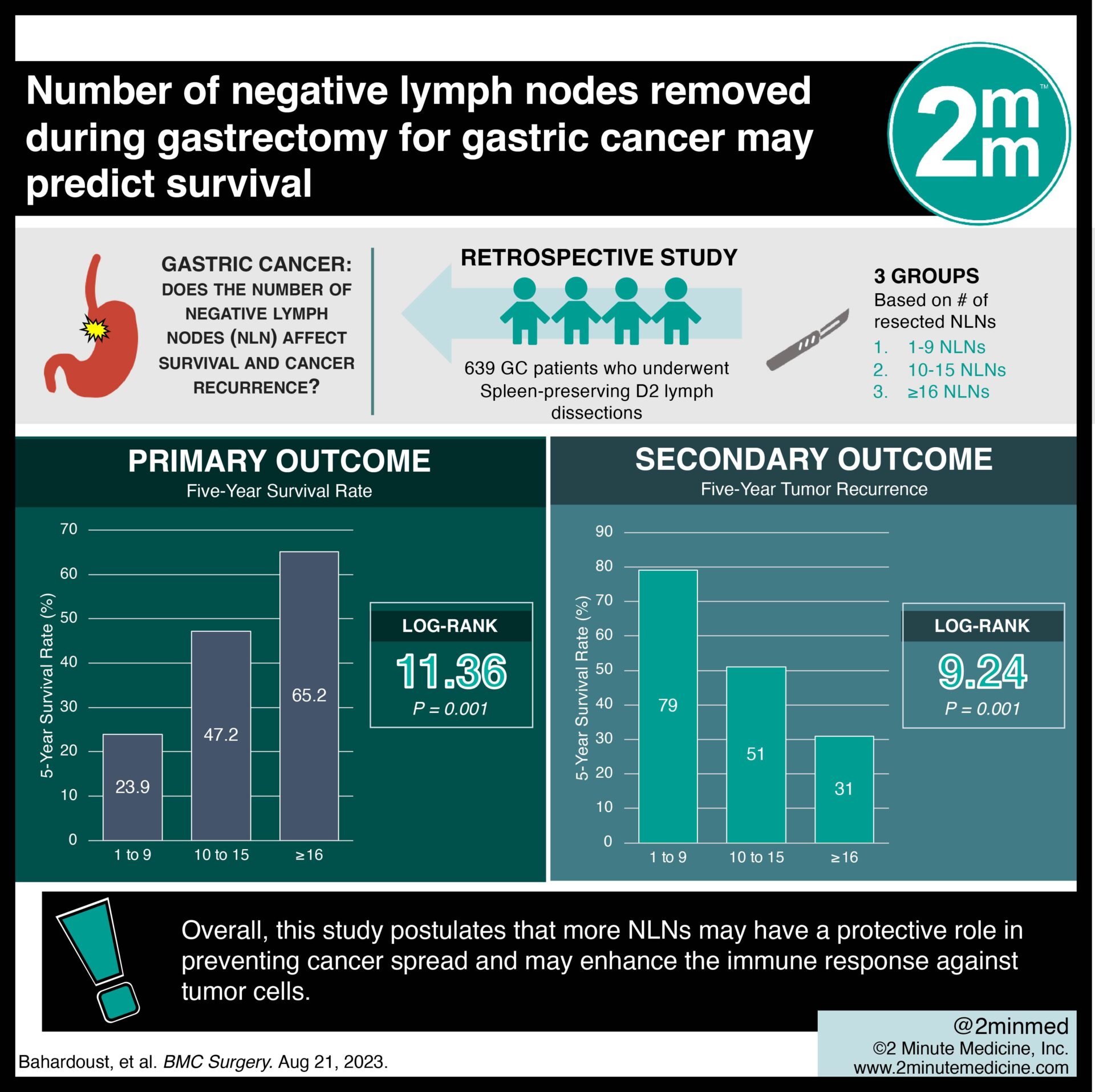
2. This serves as further evidence for proportion of NLNs as a prognostic factor in cancer treatment.
Evidence Rating Level: 2 (Good)
Currently one of the most common malignancies worldwide and the third most deadly cancer, gastric cancer (GC) is an important topic of research. The survival rate of gastric cancer is impacted by several factors following surgical resection of the stomach (gastrectomy). One such factor is the status of resected lymph nodes. Recent literature points to the proportion of negative lymph nodes (NLN) resected as a potential prognostic factor in several types of cancers. The current retrospective study analyzed the medical records of 639 GC patients who underwent Spleen-preserving D2 lymph dissections at three academic centres over a 12-year period. GCs were classified by tumour-node-metastasis (TNM), size (<3 cm vs.> 3cm), number of nodules, number of involved lymph nodes (< 2 vs.> 2), and the presence of metastasis. Patients were categorized into three groups based on whether they had 1-9, 10-15, or ≥16 NLNs resected. The 5-year survival rate was significantly higher for patients who had ≥ 16 NLNs removed compared to 1-9 or 10-15 NLNs (Log-rank = 11.36, p = 0.001). Five-year tumour recurrence was also statistically significantly reduced, with 79%, 51%, and 31% recurrence in the 1-9, 10-15, and ≥ 16 NLN groups, respectively (Log-rank = 9.24, p = .001). The highest NLN group experienced significantly longer median times for tumour recurrence (p < .001), less metastasis, and poorer tumour differentiation (p < .05). Further analyses indicated that tumour size above 5 cm, metastasis, more advanced tumour stage and differentiation, and tumour type were all related to patient survival (ps < .05) in general. This study is one of the few that has specifically analyzed NLNs in GC as a predictor of survival and cancer recurrence. The authors postulate that more NLNs may indicate more thorough dissection, have a protective role in preventing cancer spread, and may enhance the immune response against tumour cells. Prospective studies should be conducted with NLNs as a prognostic factor of interest moving forward.
Click to read the study in BMC Surgery
©2023 2 Minute Medicine, Inc. All rights reserved. No works may be reproduced without expressed written consent from 2 Minute Medicine, Inc. Inquire about licensing here. No article should be construed as medical advice and is not intended as such by the authors or by 2 Minute Medicine, Inc.















